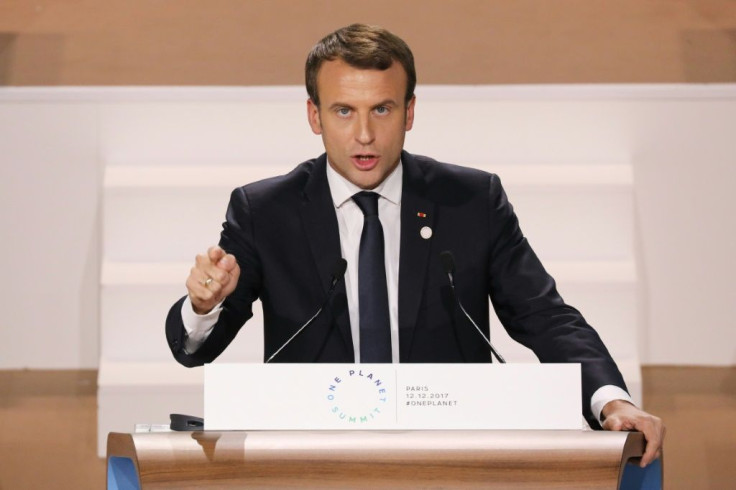France's Macron Seeks 'Turning Point' In Ties With Poland

French President Emmanuel Macron on Monday sought a "turning point" in strained ties with Poland, saying Brexit requires a new dynamic among the remaining members of the European Union.
The French leader announced a summit with Poland and EU heavyweight Germany in the coming months under the "Weimar Triangle" framework which had fallen out of favour in recent years.
Poland's controversial judicial reforms, which the EU has warned undermine the rule of law, and its position on EU climate goals, injected tension into ties with Paris and other EU members in recent years.
But Macron said Monday he hoped his visit "will mark a real turning point in the role that together we can play for the Europe of tomorrow" following talks in Warsaw with his Polish counterpart Andrzej Duda.
Macron urged cooperation to "make the European project stronger, because indeed today... after Brexit, fragility and doubt have set in."
Cooperation must serve to "meet the climate challenge and support Poland, which faces a challenge that I do not underestimate," Macron added, referring to Warsaw's uphill battle to wean itself off coal.
Focusing on defence, Macron urged "political dialogue" with Russia but assured the Poles that "France is neither pro-Russian nor anti-Russian, it is pro-European".
He also insisted that the development of European defence mechanisms would complement NATO, rather than undermine it.
Under Moscow's thumb in communist times, Warsaw is among the strongest advocates of continued sanctions against Russia over its 2014 annexation of Crimea from Ukraine.
Poland's Duda spoke of a "breakthrough" in ties with Paris and welcomed the signing of a Polish-French cooperation programme as part of their "strategic partnership".
Echoing Macron, Duda insisted that Brexit brought a "new hand of cards and new opening; roles in the EU will have to be rearranged."
Relations between Paris and Warsaw have been cool at best.
Judicial reforms have set the right-wing populist Law and Justice (PiS) government on a collision course with Brussels over rule of law violations and drawn concern from fellow EU members, including France.
Macron said on Monday that he had urged Warsaw to "intensify" dialogue with Brussels to safeguard the rule of law.
An agreement by EU leaders in December to try to make the bloc carbon neutral by 2050 was undermined by Poland's rejection.
Macron in 2018 himself accused Poland's PiS government and Hungary's populist Premier Viktor Orban of "lying to their people" about the EU's powers to interfere in domestic affairs.
But Brexit has made good relations with Poland all the more important as the central European heavyweight will now be the EU's fifth-largest member in terms of population and sixth in terms of GDP.
Following talks later Monday with Polish Prime Minister Mateusz Morawiecki, Macron underscored that the interests of Paris and Warsaw line up neatly on the key issue of continued generous funding for the EU's Common Agricultural Policy (CAP) in the bloc's upcoming 2021-27 budget.
The two leaders hailed a "new chapter" in bilateral ties, with both sides keen to develop cooperation in the areas of defence, climate and energy.
Despite political differences, economic ties between the two EU partners remain strong and stable.
France ranks sixth among Poland of trade partners, having exchanged nearly 21 billion euros worth of goods in 2018.
French companies take fourth spot on Warsaw's foreign investor ranking, with 18 billion euros from 1,100 companies, according to Polish data.
© Copyright AFP {{Year}}. All rights reserved.





















